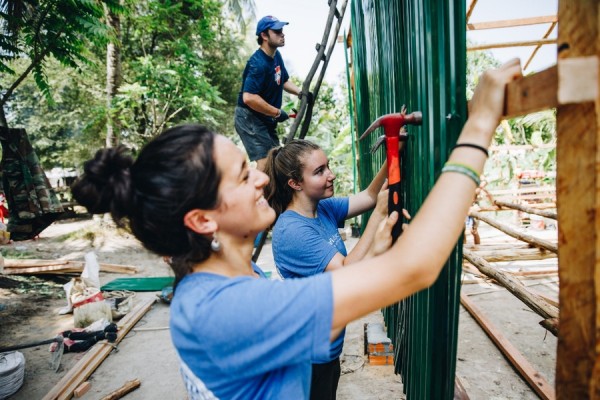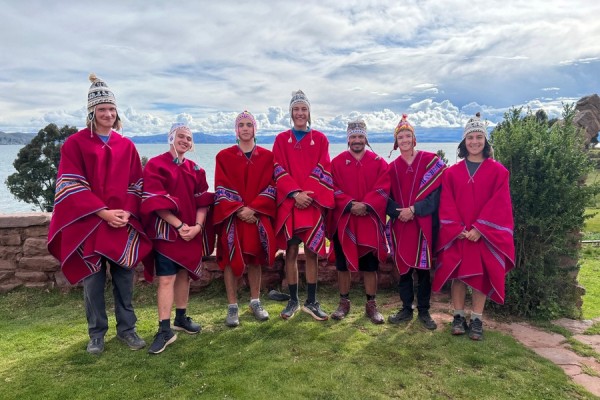A gap year done right can bring insight and maturity. It can add valuable credits to your resume and make you a more alluring candidate to admission counselors.
More and more students fresh out of high school who have taken a gap year, apply to college afterward instead. If you decided to go that route and are now wondering how to apply to college after a gap year, you're in good company!
Let's take a look at applying to college after a gap year and planning your college future. Read on to learn what steps you need to take!
Benefits of Applying During a Gap Year vs. High School
Applying for college during or after a gap year instead of high school has many benefits. Having traveled and explored your interests, you are at an advantage when deciding what you choose to pursue academically.
Putting yourself into new environments during your gap year causes a maturing that can make adapting to college much easier. Some gap year students even have better GPAs and are more open to leadership positions.
College admissions take all of your experience, volunteer, and training into account when considering your admission. This puts you at an advantage!

How to Apply to College After a Gap Year: Step-By-Step Guide
Step 1: Collect Your Records
You don't want to mismanage any of your records, past or present. This can be a difficult part of the college application process because you typically have a lot of people helping you with your records and transcripts at the end of high school.
Hopefully, you spoke with your guidance counselor before taking your gap year, and they have kept all of your transcripts ready to go for you. If you didn't communicate beforehand, go ahead and reach out anyway. They should have your records for several years after you graduate.
You need your SAT scores and transcripts to apply to college, and you need them long before the application deadline. Plan on getting these early, and find out when your deadlines are for college applications. Just because classes may start in the fall, doesn't mean colleges aren't accepting applications in January.
Have all of your SAT scores, grades, and records organized and ready to go with your college application documents.
Step 2: Get Recommendations
If you had recommendations before you graduated high school, your guidance counselor may still have them on file with your other records. Ask them about these recommendations when you contact them about your transcripts.
Since almost everything is digital these days, contact your teachers directly and ask if they still have a copy. If your high school didn't keep copies, this is your best alternative solution.
If these recommendations have been lost, you may not be getting as detailed notes when they go to rewrite them as it's not as fresh in your teachers' minds. However, it's still important to have a few recommendations from high school teachers.
Reach out to your mentors, supervisors, program instructors, or others who helped you grow towards your future during your gap year. Colleges will want to know what this year did for you and what you bring to their campus now because of it. These recommendations from the people who were with you during that time will go a long way!
Plan on having at the very least one recommendation from someone with you in your gap year. This should be in addition to two or three teachers or counselors from high school speaking about your school experience.
Step 3: Build a Resume
For your college admissions profile after a gap year, you're going to want to include a resume.
As you were gaining work history or volunteer hours, you should have been recording and storing it all in one place for applying to college after a gap year. It's no problem if you haven't. You just have to go back and figure it out so you can build your resume now.
All of the accomplishments you gained during your time are some of the many benefits of gap years. If you've spent the time wisely, accruing new skills and investing in bettering yourself and helping communities, write those on your resume.
Emphasize any achievements you reached in high school that are of note and don't make them repetitive. A single-page resume should suffice.

Step 4: Write Your Essay
When writing your college essay, prepare to write a few drafts. Brainstorm some different topics that answer the question being asked, and pick one that is meaningful that allows you to reflect.
Once you've developed a draft, have a teacher, mentor, or someone close to you read through it. You need to be able to take their advice to heart and rewrite!
Don't leave your gap year program out of your college essay. Include why you thought it was important to take it, how much you learned and experienced, and why it makes you a better student now.
This makes you an interesting, cultured candidate who has narrowed down their field of interest.
Step 5: Address Your Gap Year
You can do this by working it into your essay like we talked about above or creating a separate document accounting for the space between high school and college. Either way, you need to let college admissions know what you spent that time doing, whether it was an internship, volunteer work, or a gap year program abroad.
Detail your inspiration for taking a gap year. Acknowledge the goals you had for doing so and how you managed to achieve them.

Final Notes
Gap years can be extremely fulfilling, and taking time to learn more about your interests and develop a sense of direction can be worthwhile. Applying for college after a gap year isn't much different than applying directly out of high school.
You will need those transcripts and records that you have hopefully kept together and organized as we discussed above and some great recommendations. It doesn't have to be a scary process, and most college admission offices don't count it against you, especially if you've used the time wisely.
If you're still looking for valuable experience to add to your gap year, Pacific Discovery can help you make the most of it with gap year programs that focus on a combination of cultural immersion, outdoor exploration, and rewarding volunteer work. Browse through our gap year programs to see what could be a fit for you!
Discover more
- The benefits of taking a gap year
- 12 cool gap year ideas for students
- How to take a gap year after high school
- What to do during a gap year in 2023
- How to take a gap year during college
- Why you should consider volunteering abroad on your gap year
- Everything you'll ever need to know about planning your gap year
- Should I take a gap year before medical school?
-


Leave a Comment
Your email address will not be published. Required fields are marked *